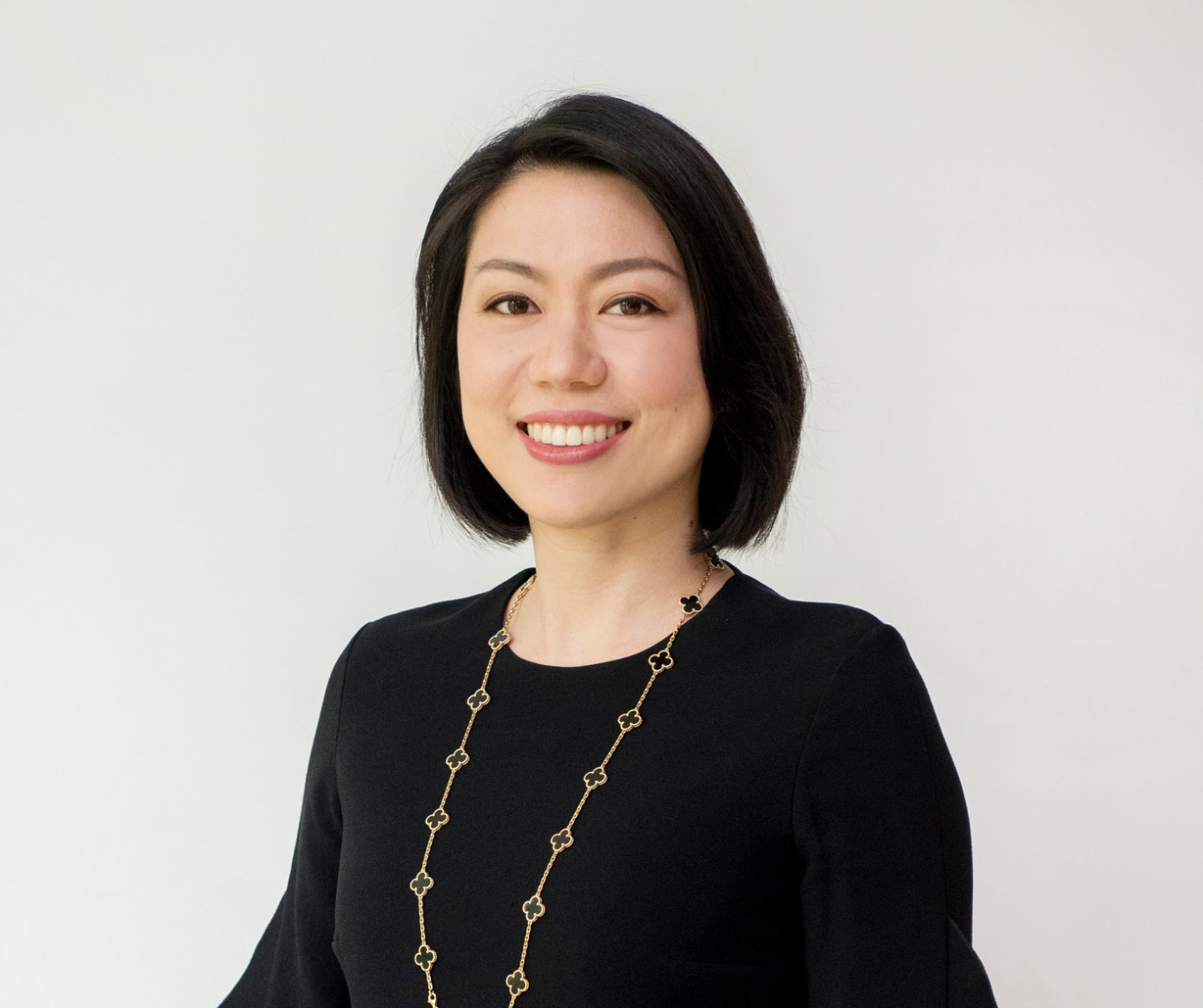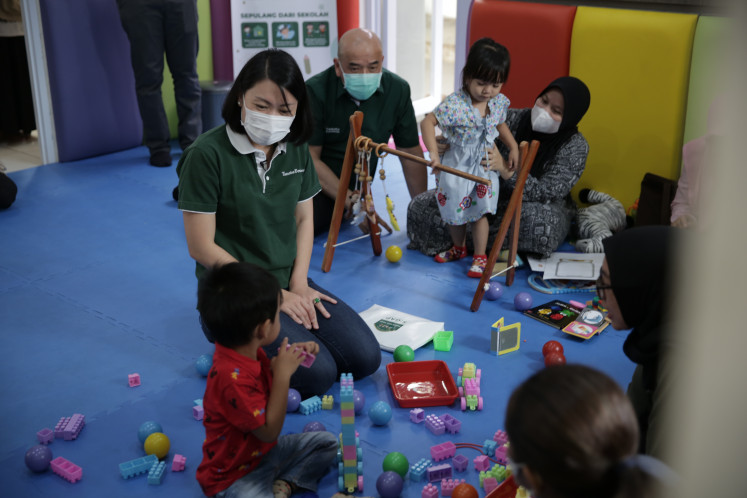Popular Reads
Top Results
Can't find what you're looking for?
View all search resultsPopular Reads
Top Results
Can't find what you're looking for?
View all search resultsWhat I’ve Learned: Belinda Tanoto, philanthropist
For the past decade, Belinda Tanoto has established herself as a leading figure in the philanthropic space, in both Indonesia and beyond. She’s the kind of philanthropist who constantly seeks to challenge her team and herself.
Change text size
Gift Premium Articles
to Anyone
‘What I’ve learned’ is a new column that presents candid interviews with policymakers, artists, activists and businesspeople on facing challenges and making a difference.
For the past decade, Belinda Tanoto has established herself as a leading figure in the philanthropic space, in both Indonesia and beyond. She is the kind of philanthropist who constantly seeks to challenge her team and herself. Take the Tanoto Foundation’s approach to stunting, which Belinda has spearheaded.
For Belinda, philanthropy is more of a compulsion than a mere desire. As she says, “You want to go fast you do it alone. You want to go far, you have to do it together.” Luckily, Belinda has built a solid team that relies on data and evidence alongside on-the-ground insight.
Belinda joins What I’ve Learned to talk about poly-capital philanthropy, learning from COVID-19 and why she believes coalition building is the way forward.
In Indonesia it is not about the hardware so much as it is the people.
I am excited for the next generation of philanthropic leaders. Their authenticity and desire to change the world come from the heart.
It is not just about passion. You have to think about how to build a team. A lot of what we do is bringing people together, trust building. As we switch from direct-service delivery to building coalitions, we spend a lot of time bringing people together, building trust and changing ideas.
We use the phrase poly-capital philanthropy. It is not just money, it is time, influence, networks, our ability to bring people together to convene.
Being on the ground is especially critical during the time of change. Think about when schools went online during COVID-19, you had to be there on-the-ground talking with teachers to really understand what they needed.
For us it is important to have on-the-ground touch, because you are piloting and scaling. You really get a lot of learning. And you have to use that learning to then influence systems.
It is impossible to inform policy without the relevant experience on the ground. The key is to understand that if you do not have village-level interventions, it is very difficult to engage the policymakers on upstream-policy work.
We have shifted more toward influencing systems. But you need to have village-level interventions to inform your upstream-policy work. The importance of data-driven investments. Looking at what are the existing gaps. Using data. Partnering with others to collect that data. Addressing those gaps.
We are doing more coalition building and more partnering with universities for research, especially in Indonesia and China.
Together: Belinda Tanoto says that the success of her philanthropy is also due to the team behind her. (Courtesy of Belinda Tanoto) (Archive/Courtesy of Belinda Tanoto)My parents started their philanthropic work by investing in the schools around their factories. They saw that kids were still not getting access to good education. They help them by building schools and other facilities. Then it evolved and transformed, which not only helps people near factories, but also goes further and focuses on entire education lifecycles, including stunting prevention, and we saw that the intervention during the first 1,000 days of life yields the highest returns
In Indonesia it is always about people. In Indonesia it is not about the hardware, it is about the people, so … strengthening the key actors and key regulatory bodies in the ecosystem.
For stunting, over the next 3 to 5 years I would love to see more investment in parenting. I think we can graduate to a place where it is not just about health and nutrition, but parenting. I think that because 80 percent of brain development occurs between the ages of 0-3 it is not just about nutrition, but about stimulation and caregiving.
I have seen a lot of convergence on the part of the government and increased awareness among key populations. Going forward we want to strengthen key actors.
We apply a lot of our business-management philosophy to the foundation.
One of my Harvard Business School professors, Clayton Christensen, wrote How to Measure Your Life. This book makes you ask yourself, “How do you want to prioritize your life?” How do you want to live your life? Especially people in the business world.
We know we cannot do it alone. When we started doing our work, we were very focused on direct-service delivery to influence systems.
Partnering with others has been a big change. Learning how to bring people together to unite diverse actors to learn from each other and building a network of leaders including policymakers that advocate and take action for the needs of young children and their families across Indonesia has been a big change in our own capabilities as well.
USAID had come to us to do something in stunting and we went to a few others, including BCA and Bakti Barito Foundation and PT Amman Mineral to tackle stunting together. This is a Penta helix collaboration involving the government, private sector and philanthropy, as stunting is a multidimensional issue requiring a multisectoral approach.
You want to go fast you do it alone. You want to go far you have to do it together.












